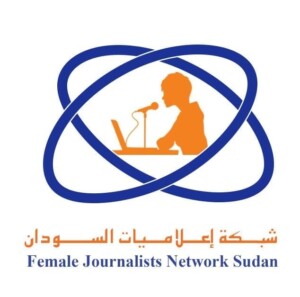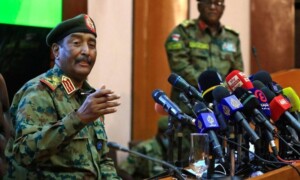USA should modernise its Sudan policy: The Sentry
After the ousting of the regime of former President Omar al Bashir, and the following changes in Sudan moving toward democracy, the USA could utilise an expanded policy toolbox to support further positive change in the country, says The Sentry.
In a new policy brief on Friday, The Sentry, a project of the USA-based activist think-tank Enough Project, explains what should be in that toolbox.
 (File photo)
(File photo)
After the ousting of the regime of former President Omar al Bashir, and the following changes in Sudan moving toward democracy, the USA could utilise an expanded policy toolbox to support further positive change in the country, says The Sentry.
In a new policy brief on Friday, The Sentry, a project of the USA-based activist think-tank Enough Project, explains what should be in that toolbox.
“US policy should aim to strengthen the hand of reformers in the civilian government while limiting the influence of the spoilers of reform and peace, principally those associated with the military and security services,” the policy brief reads.
“To achieve these goals, economic and diplomatic pressures and incentives from the United States and the broader international community should be aimed at dismantling the violent kleptocratic elements that are still in place within Sudan’s kleptocratic system and that continue to threaten the success of Sudan’s transition.
“To that end, the US government should undertake a more comprehensive and nuanced strategy than the approach it has pursued over the past 30 years, utilizing a combination of policy-based incentives and modernized financial pressures to support carefully benchmarked reforms.”
Financial pressures
“The United States should apply targeted sanctions against the networks of former and current corrupt officials — along with their associated companies and international and domestic partners — who are acting as spoilers for reform and peace efforts, particularly those linked to the military and Rapid Support Forces.
“The US Department of the Treasury’s Financial Crimes Enforcement Network (FinCEN) should issue a public anti-money laundering advisory warning financial institutions of the risks associated with Politically Exposed Persons involved in significant acts of corruption in Sudan and the typologies of their illicit financial activity, including through the gold trade and banking sector.
“The US Department of the Treasury should require U.S. companies investing in Sudan to report publicly on due diligence conducted with respect to key issues, such as anti-corruption, human rights, and direct business with the military.”
Policy-based incentives
“As soon as there is evidence that the military and Rapid Support Forces are giving the new civilian government the space to govern —especially with fiscal transparency— and negotiate peace with armed movements, the United States should remove Sudan from the State Sponsors of Terrorism List. The prospect of removing Sudan should be a major point of leverage to press for early and visible efforts at reform and peace. We believe such a timed response is important because of the continued presence of the military and associated paramilitary forces in the new government. These remnants of the previous regime seek to protect their looted assets and financial interests and arrangements. It is our strongly held concern that entire sectors of the economy are dominated by companies controlled by senior military and paramilitary Rapid Support Forces officials, and the reform efforts of the new civilian administration will be jeopardized by this reality, just as they were in Egypt and elsewhere.
“The removal of Sudan from the State Sponsors of Terrorism List will permit a wide range of new possibilities for development aid, foreign investment, and debt relief for Sudan. These interventions will support the new civilian government as it seeks to rebuild Sudan’s economy and make good on its proclaimed commitments to transparent governance, religious freedom, press freedom, and a resolution of the country’s conflicts.
“With evidence that the new civilian government has oversight over the budget and is prioritizing transparency, the United States should work with other governments, the International Monetary Fund, World Bank, African Development Bank, the European Union, the African Union, and the United Nations to begin a program of conditional debt relief. Specifically, such relief should be triggered by progress on resolving the country’s various conflicts as well as satisfactory progress on anti-corruption reforms. This progress should include:
– Ensuring full transparency of the national budgeting process [..]
– Establishing a robust and fully independent anti-corruption commission by an act of parliament.
– Tasking an independent commission to investigate and prosecute corrupt actors, focusing on the role of Politically Exposed Persons and their companies in skimming high profit margins from government loans and contracts.
– Establishing an asset recovery commission to return to the treasury the proceeds of corruption.
“To accelerate these changes, the United States Agency for International Development should extend technical resources to implement anti-corruption reforms and support the new government’s plans for economic and public sector reforms, including through the introduction of anti-corruption and transparency standards as well as the independent institutions named above.”
The Sentry was launched by Enough Project in July 2015 “to dismantle the networks of perpetrators, facilitators, and enablers who fund and profit from Africa’s deadliest conflicts”.
Radio Dabanga’s editorial independence means that we can continue to provide factual updates about political developments to Sudanese and international actors, educate people about how to avoid outbreaks of infectious diseases, and provide a window to the world for those in all corners of Sudan. Support Radio Dabanga for as little as €2.50, the equivalent of a cup of coffee.












 and then
and then